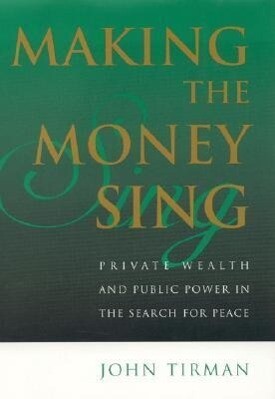
Zustellung: Mi, 30.07. - Di, 05.08.
Versand in 3-4 Wochen
VersandkostenfreiIn the 1980s, liberal philanthropists worked in tandem to end the nuclear arms race--a remarkably successful effort--but scattered into several directions in the 1990s after the Cold War ended. This book chronicles those two decades, with provocative stories and insights about how and why philanthropy reshapes international affairs.
Inhaltsverzeichnis
Chapter 1 Private Wealth and Public Aspirations Chapter 2 The Early Peace Donors Chapter 3 Fueling the Momentum Chapter 4 How We Ended the Cold War Chapter 5 Did Philanthropy Make a Difference? Chapter 6 Leaving the Cold War Behind Chapter 7 The Big Crack-Up Chapter 8 The Civil Society Revolution Chapter 9 Building the House of Peace Chapter 10 Making the Money Sing
Produktdetails
Erscheinungsdatum
13. September 2000
Sprache
englisch
Seitenanzahl
192
Autor/Autorin
John Tirman
Verlag/Hersteller
Produktart
gebunden
Gewicht
426 g
Größe (L/B/H)
236/157/20 mm
ISBN
9780847699223
Entdecken Sie mehr
Pressestimmen
Making the Money Sing should be required reading for any philanthropist, new or experienced. John Tirman shows that imaginative and creative donors can influence public policy and successfully engage issues with all the momentum of the Cold War. Tirman also points out the need for every donor to consider what might happen if the goal is achieved. Donors did not bring as intense a focus to building peace after the Cold War as they did to ending the Cold War. This case study of philanthropy, the peace movement, and public policy should encourage anyone to believe that it is possible to make a difference, however complex and seemingly intractable the problem. -- Adele Simmons, former president of the John D. and Catherine T. MacArthur Foundation. A lucid gem of a book, John Tirman's Making the Money Sing is the untold story of how a handful of good-hearted foundation officers leveraged private wealth to help bring an end to the Cold War. Tirman opens our eyes to the critical role played by foundations in the rough and tumble jousting of foreign policy making. This fine book should be an inspiration to anyone working in the philanthropic world. But it is also a reminder to all scholars that 'following the money' is essential to writing good history. -- Kai Bird, author of The Color of Truth: McGeorge Bundy & William Bundy, Brothers in Arms and coeditor of Hiroshima's Shadow John Tirman's thoughtful book provides a fresh and provocative analysis of how and why the Cold War ended. And his views of civil society in the post-Cold War era will set off a new debate amongst internationalists, philanthropists, and social activists. -- Archibald L. Gillies, president, The Andy Warhol Foundation for the Visual Arts Very few historians have paid attention to how American foundations and private donors have helped shape U.S. foreign policy and public opinion on international issues. But they will have to do so after reading John Tirman's book. Tirman's examination of the role philanthropy played in the arms control and intervention debates of the 1980s and 90s is subtle and fascinating-all the more because he was an insider in the process himself. And he has added some new, previously unsung visionaries to the cast of characters who deserve credit for helping to end the madness of the Cold War. -- Adam Hochschild
Bewertungen
0 Bewertungen
Es wurden noch keine Bewertungen abgegeben. Schreiben Sie die erste Bewertung zu "Making the Money Sing" und helfen Sie damit anderen bei der Kaufentscheidung.







